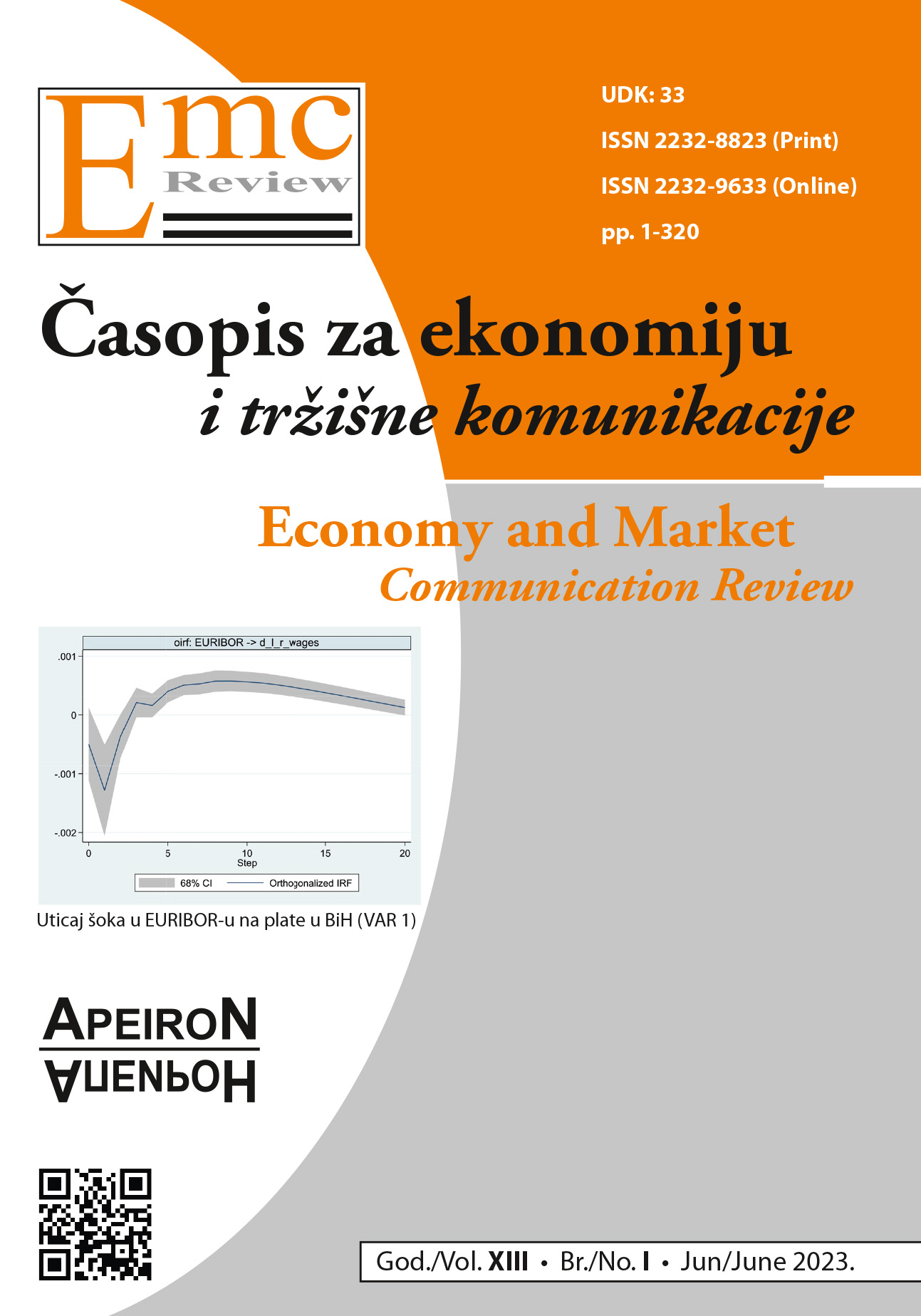THE INFLUENCE OF INTANGIBLE MOTIVATION STRATEGIES ON THE SUCCESS OF BUSINESS IN THE ORGANIZATION
DOI:
https://doi.org/10.7251/EMC2301131MAbstract
Employee motivation is the basis of interest in modern human resources management. By building a quality motivational system, the organization is helped to increase its competitive ability, as well as organizational value. Previous motivational techniques, strategies and systems have become insufficient and inflexible to meet the criteria of today’s employees. Therefore, it is necessary to introduce new motivational techniques and systems in order to achieve high motivation, employee satisfaction and successful business operations of the organization. Many organizations have realized that in addition to material compensations, employees today expect non-material compensations as well. With them, the organization achieves the satisfaction of the “higher order” needs of its employees (the need to confirm expertise, ability and a job well done, the need for personal and professional development, the need for self-esteem, the need to achieve a certain status, and other needs related to the employee’s position). Therefore, the research goal of this paper is based on finding a solution related to the problem of how and in what way to help management motivate employees with intangible motivation strategies. In the scientific research for the purposes of this paper, scientific research methods will be used, in order to ensure the most reliable, high-quality and concrete knowledge and conclusions about the proposed topic. Various logical and technical methods will be used for the analysis of individual elements and the mutual influence of individual elements, from descriptive, analytical-synthetic, inductive-deductive and compilation methods to statistical and mathematical methods, the use of which will depend on the goals set in the work itself. The research will use: the survey method, methods of systematic analysis, descriptive, and some of the methods that, with certain adjustments, will also be applied in the final considerations. The survey showed that the majority of respondents believe that special stimulation programs should be introduced in their organization. Most respondents also answered that training and career development are more important to them than salary and other material rewards. However, it depends on the positional status of the respondent. According to middle, higher level and top managers, employee participation in decision making and problem solving is very often more important than salaries and other material rewards. For middle- and higher-level respondents, positional status is more important than salary and other material rewards, while for half of the lower-level respondents, it is not important at all. In addition, for the majority of respondents, it is important to introduce more diverse tasks and skills, responsibility and autonomy into the work, which achieve a greater effect than salaries and other material rewards. And finally, respect and correct attitude of superiors towards employees is very important to all respondents, regardless of their position status. Therefore, the obtained research results moderately confirm the theoretical assumptions. Therefore, the hypothesis: Intangible strategies for motivating employees in the civil service and local and regional self-government are more important than salaries and other material rewards, was accepted because the respondents mostly gave answers in the upper measurement scale.
